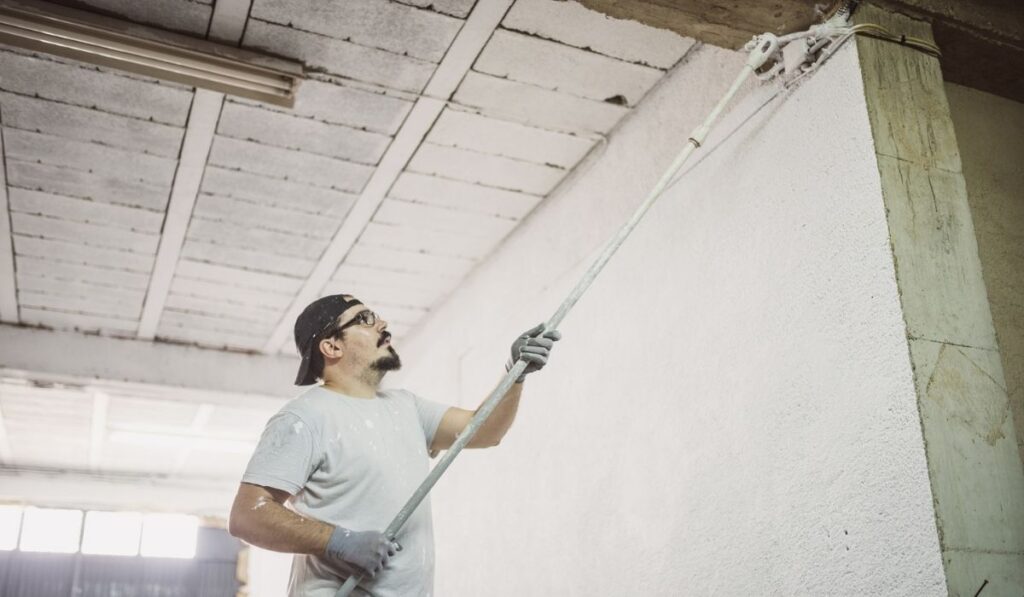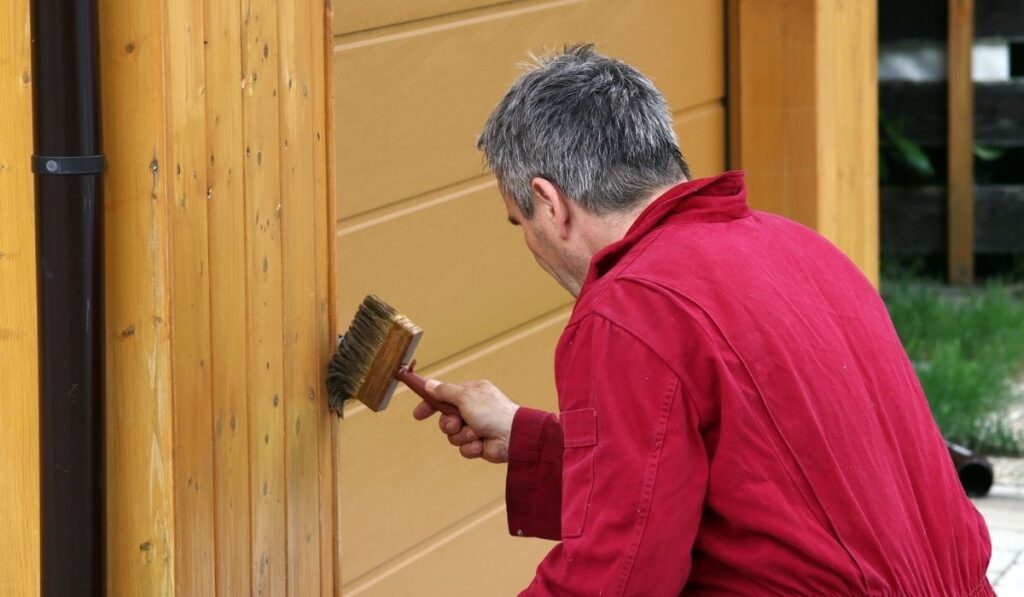Painting garages often present a problem for many homeowners. This is because it is part of the house but outside the main living space. So, many homeowners wonder whether to use interior or exterior paint for their garages. Exterior paints may last longer despite being exposed to the weather, but that isn’t the whole story.
For your garage walls, you should use interior paint. Using exterior paint within the garage walls can have disastrous consequences for health since it has chemicals that require regular airflow to mitigate its toxicity. This is not the case with interior paint, which is certified for indoor use.
Understanding the composition of exterior paint is key to understanding why you shouldn’t use it on your garage walls. Going further, we will review the best product for garage painting and determine if you should use exterior paint in a detached garage.
Should You Use Interior or Exterior Paint in A Garage?

When you want to paint the interior walls of your garage, use interior paint. Using exterior paint for your garage wall might seem a good idea because it lasts longer. However, using exterior paint in a poorly ventilated place like a garage is a terrible idea.
Exterior paint has chemicals to protect it from harsh sun, rain, or snow. These chemicals pose no threat when they are on the exterior with enough aeration. When applying the same paint inside the garage, these chemicals pose a health hazard with little ventilation.
Interior paint offers no such problem. It doesn’t require additional chemicals to protect it from the weather. It also doesn’t pose any health hazard to home occupants when applied.
For this reason, it is recommended to use interior paint for your garage walls. Several products available would do a good job and not harm you in the process.
Is It Safe to Use Exterior Paint in A Garage?
Using exterior paint in your garage isn’t safe. There are several reasons why exterior colors aren’t safe for painting in a garage.
Exterior paint contains Volatile Organic Compounds (VOCs) that are harmful when breathed in with paint fumes. Examples of these VOCs are benzene, methylene chloride, ethylene glycol, and xylene.
It’s important to know that these chemicals or compounds are volatile at room temperature. This volatility means that when you use them in your house, they give off fumes that humans inhale. Some naturally occurring VOCs aren’t harmful, but those used by exterior paint are.
Some of the health implications of long-term exposure to Volatile Organic Compounds include:
- Eye, nose, and throat irritation
- Difficulty in breathing
- Nausea
- Organ damage
- Damage to Central Nervous System (CNS)
The worrying thing is that the longer the exposure to the VOCs, the higher the severity of the health issues. If you are insistent on using exterior paint on your garage walls, look for those with zero VOCs.
That way, you can protect your health and that of your loved ones. The only drawback is they are usually more expensive than regular exterior paints.
Should You Use Interior or Exterior Paint for a Detached Garage?

When it comes to a detached garage, the rules change a little. When your garage isn’t part of the house, there is leeway for you to apply exterior paint to your walls. If you are using your garage for a workshop, for instance, and there is a possibility of high wear and tear, using exterior paint for your walls isn’t a bad idea.
Exterior paints are thicker than interior paints and hide stains better. There is also the advantage that exterior colors will protect the walls from mildew.
Also, it is easier to increase ventilation with a detached garage when painting. Opening the windows and the garage door will minimize the effects of the VOCs.
Furthermore, a detached garage means that the main house occupants don’t have to worry about fumes from the paint. This only works if the garage serves as a workshop and is well ventilated. You should also consider human traffic into the garage.
Are you the only one that uses the garage or workshop? Is there little chance of your pets or children visiting the garage or workshop? If the answer to these questions is yes, you can use exterior paint on your walls.
However, if you use your detached garage as a man cave, for instance, there’s little chance the doors will be open often. In that case, it is better to stick to interior paint. Whatever decision you make, you should base your choice on the amount of ventilation in the garage.
If the garage is well-ventilated, you have no issues applying exterior paint to your garage walls.
What Is the Best Paint for Garage Walls?
The best type of interior paint to use for your garage interior is interior latex paint. Other interior colors can work, but latex paint has the edge for the following reasons. Its water base makes one of the quickest drying paints, and it also doesn’t give off a lot of odor.
An additional advantage is diluting it with water because the paint has a water base. Using water instead of a paint thinner saves you the extra cost. If you aren’t comfortable with the water-based latex paint for some reason, you can use oil-based paints.
They don’t dry as fast as latex paints, their odor is more pungent, and you need paint thinner to dilute them. There are also latex acrylic paints – these are more stain-resistant than ordinary latex paints.
Summary
When deciding what type of paint to use for your garage, consider the Volatile Organic Compounds level in the paints. The other factors to consider are the color, additives, and finish.
Using exterior paint inside your garage is something you shouldn’t think about, no matter the circumstances. Quality interior colors will give your garage the finish you desire.
